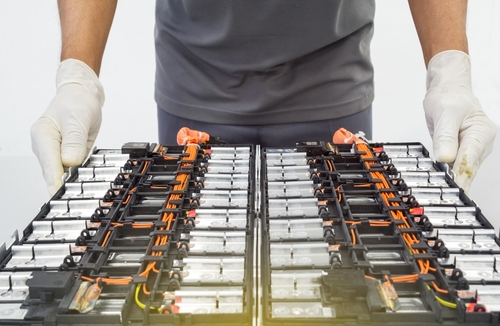
Cambridge, Mass.-based 24M announced Monday it had been selected by the U.S. Department of Energy Advanced Research Project Agency-Energy (ARPA-E) to receive $3.2 million to develop more affordable, convenient, efficient, and resilient electric vehicle (EV) batteries.
“We are pleased to be chosen for this initiative and help strengthen the domestic supply chain for advanced batteries that power electric vehicles,” said Naoki Ota, president and CEO of 24M. “The demand for lower-cost, higher-capacity batteries is greater than ever before. The current processes to manufacture lithium-ion batteries are approaching performance and cost limits and require an innovative manufacturing platform that improves performance while reducing costs.”
Part of the ARPA-E Electric Vehicles for American Low-Carbon Living (EVsALL) program, 24M said it will use the funding to partner with the Massachusetts Institute of Technology (MIT) and Carnegie Mellon University (CMU) to use its SemiSolid manufacturing platform to develop low-cost, fast-charging sodium metal batteries with good low-temperature performance for EVs. The 24M cell design will incorporate an ultra-thick SemiSolid cathode, an advanced wide-temperature, fast-charging electrolyte, and a sodium super ionic conductor.
“As the U.S. Department of Energy looks to expand domestic adoption of electric vehicles, sodium metal batteries can play an important role in ensuring low costs for all consumers,” said Dr. JunZheng Chen, director of advanced R&D at 24M. “This funding will help us develop, manufacture, and deliver these batteries at scale.”
The company said that ultra-thick SemiSolid electrode architecture has been demonstrated before with exceptionally high energy density but that its chemistry-agnostic SemiSolid manufacturing platform and modular approach to battery cell design would allow the partners to apply the electrode architecture to sodium chemistry for fast-charging, high energy density, and low-cost batteries.